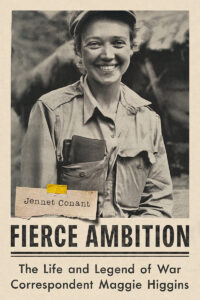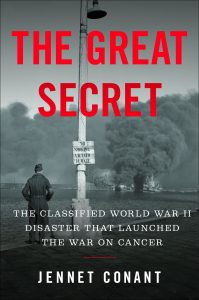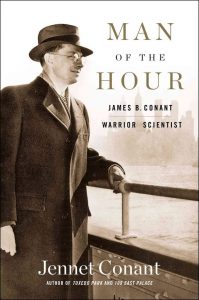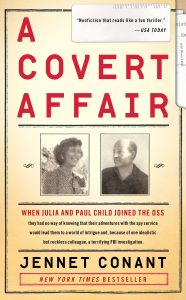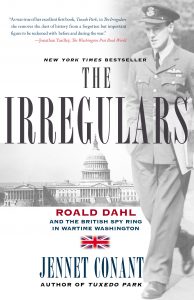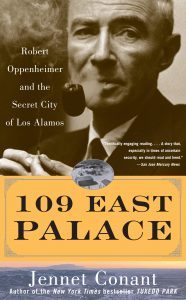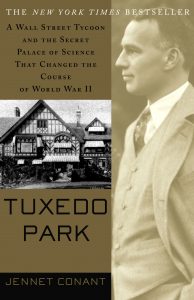The gripping story of a chemical weapons catastrophe, the cover-up, and how one American Army doctor’s discovery led to the development of the first drug to combat cancer, known today as chemotherapy
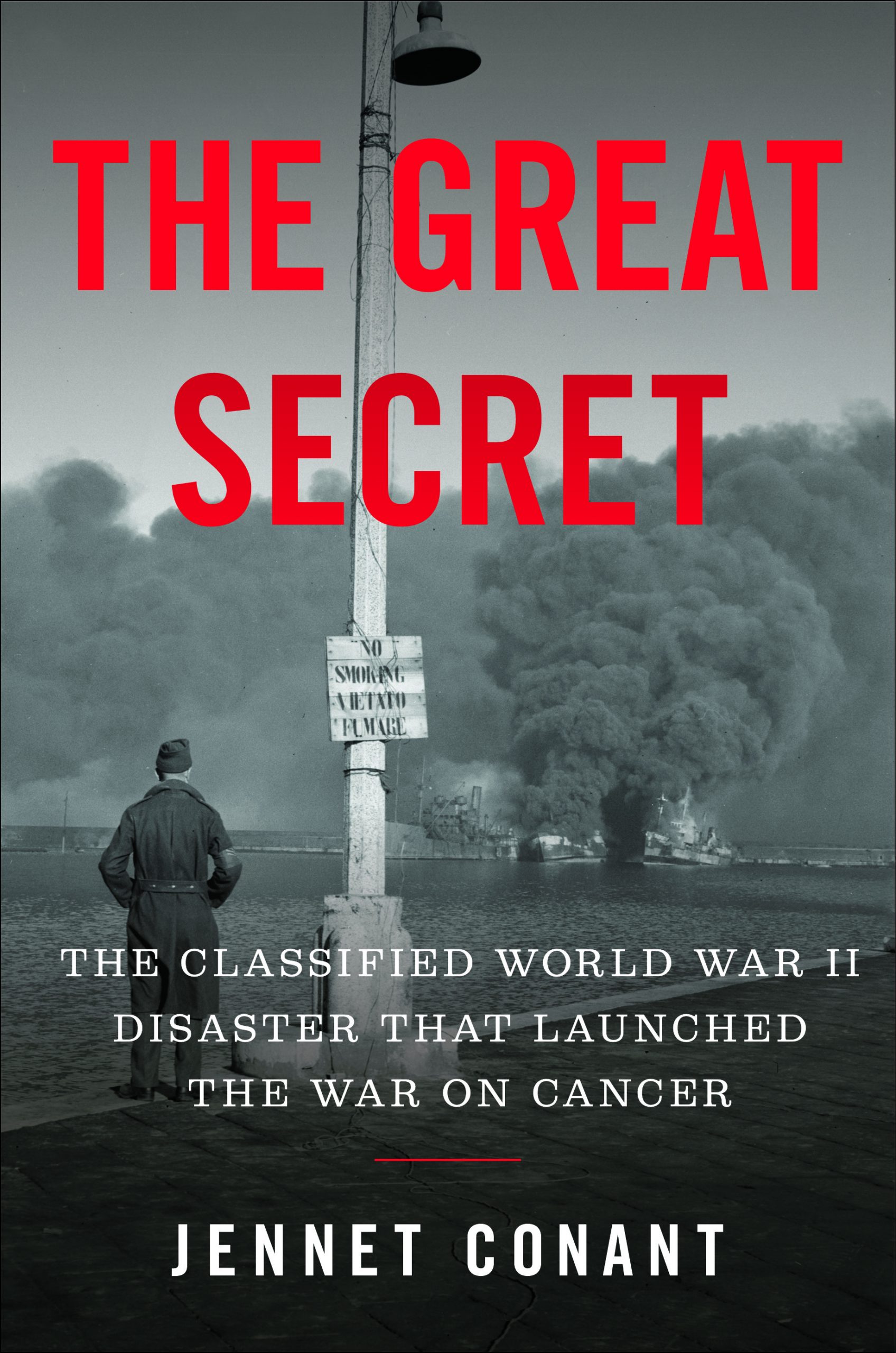
Purchase from Amazon or Barnes & Noble
On the night of December 2, 1943, the Luftwaffe bombed a critical Allied port in Bari, Italy, sinking seventeen ships and killing over a thousand servicemen and hundreds of civilians. Caught in the surprise air raid was the John Harvey, an American Liberty ship carrying a top-secret cargo of 2,000 mustard bombs to be used in retaliation if the Germans resorted to gas warfare.
After one young sailor after another began suddenly dying of mysterious symptoms, Lieutenant Colonel Stewart Alexander, a doctor and chemical weapons expert, was dispatched to investigate. He quickly diagnosed mustard gas exposure, but was overruled by British officials determined to cover up the presence of poison gas in the devastating naval disaster, which the press dubbed “little Pearl Harbor.” Prime Minister Winston Churchill and General Dwight D. Eisenhower acted in concert to suppress the truth, insisting the censorship was necessitated by military security.
Alexander defied British port officials and heroically persevered in his investigation. His final report on the Bari casualties was immediately classified, but not before his breakthrough observations about the toxic effects of mustard on white blood cells caught the attention of Colonel Cornelius P. Rhoads—a pioneering physician and research scientist as brilliant as he was arrogant and self-destructive—who recognized that the poison was both a killer and a cure, and ushered in a new era of cancer research led by the Sloan Kettering Institute. Meanwhile, the Bari incident remained cloaked in military secrecy, resulting in lost records, misinformation, and considerable confusion about how a deadly chemical weapon came to be tamed for medical use.
Deeply researched and beautifully written, The Great Secret is the remarkable story of how horrific tragedy gave birth to medical triumph.
An Editors’ Choice of the New York Times Book Review
“In a history that reads like a novel, Conant connects the 1943 bombing by the Nazis of an American ship containing banned mustard gas to the development of chemotherapy as a cancer treatment, after a military doctor dispatched to the scene noticed that many of its victims had reduced numbers of white blood cells. The doctor had “the foresight to gather tissue samples from some of the casualties and ship them off to research labs in the United States for further study. The results, Conant tells us, helped spur research into the use of chemical compounds, or chemotherapy, in the war against cancer.”
Critics’ Praise for The Great Secret
“A story of scientific triumph clouded by a parallel tale of official coverups and ethical quagmires,” writes Laura Landro in her review. A “compelling narrative…The Great Secret is another reminder of how many were sacrificed in the pursuit of a victory for which any alternative was unthinkable.”
—The Wall Street Journal
A “riveting saga…With a keen understanding of medical science, cancer, and the history of World war II, as well as an amazing range of sources, Conant dramatically illuminates a dark moment in history that eventually led to the medical breakthrough of chemotherapy.”
—The National Book Review
“A fast-paced medical detective story that demonstrates how careful scientific observation can yield unexpected benefits and serves as a reminder of the difficult choices made by governments to balance public health and secrecy in matters of security.”
—Science Magazine
“The Great Secret reveals the surprising links between chemotherapy and chemical weapons in this well-researched and engrossing account” says Publisher’s Weekly. “Conant documents the many twists and turns of this little-known story with verve and precision. WWII aficionados and medical history fans will be fascinated by this illuminating chronicle.”
—Publisher’s Weekly
“A revealing history of a 1943 German bombing of Allied shipping that came with unexpected consequences.
Three months after the invasion of Italy, the southern harbor of Bari was busy and almost undefended when the Luftwaffe attacked, sinking 17 ships and producing damage and casualties comparable to Pearl Harbor. Bestselling author and historian Conant begins with a vivid description of the December 1943 raid, an event that proved to be a terrible embarrassment to the Allies, who made a partially successful effort to suppress news of the attack. They were better able to hide what happened over the next days and weeks. Victims appeared burned and blistered, yet their hair and eyebrows were unburned. Their eyes and throat were inflamed, and they often died with what seemed like pneumonia. Ultimately, about 600 were affected. Some doctors suspected that they were seeing symptoms of mustard gas exposure. Conant’s hero in this fascinating and often gruesome story is Lt. Col. Stewart Francis Alexander, the Allied physician in charge of the Chemical Warfare Service. Arriving in Bari at the request of the local doctors, he confirmed their diagnosis and, despite vigorous denials from military officials, determined the source: an American ship carrying a cargo of mustard gas bombs. The Allied high command accepted his report but classified it until long after the war. This suppression did not include results from Alexander’s meticulous research, which included autopsies, blood tests, and tissue samples. He reported that the gas killed victims’ rapidly dividing blood and lymphatic cells. Since cancer cells also divide rapidly, here was a chemical that would destroy them. Alexander returned to private practice after the war, but his findings galvanized the few medical researchers looking for drugs to fight cancer. Smoothly switching gears, Conant devotes the final third of her book to the early efforts, which were dogged by controversy and disappointment but began achieving permanent cures by the 1960s.
An impressive dual history of a military disaster and a scientific breakthrough.”
—Kirkus (*starred review)
Advance praise for The Great Secret
“Author and journalist Jennet Conant has uncovered a humdinger of a tale, one that is equal parts war story, conspiracy thriller and medical mystery. More than anything, The Great Secret shows how the dogged efforts of a handful of scientists were able to turn a wartime tragedy and coverup into one of society’s greatest gifts. This is a rare jewel of a story that readers will love and fellow historians will covet.”
—James M. Scott, Pulitzer Prize finalist and author of Target Tokyo and Rampage
“With a scintillating detective-tale plot rendered with an accomplished novelist’s flair, Jennet Conant peels back the layers of deception employed by Allied authorities—including Winston Churchill—to conceal the fact that many of those who died at the Bari disaster in December 1943 perished from unprecedented exposure to mustard gas and immersion in ship fuel oil. This fast-paced narrative alone would make The Great Secret a landmark work, but Conant surpasses this with the even more astonishing chronicle of how insights into the Bari deaths ultimately galvanized the creation of the whole field of cancer chemotherapy. This is a heartbreaking and inspiring tale of tragedy leading to triumph.”
—Richard B. Frank, author of Tower of Skulls: A History of the Asia-Pacific War, July 1937–May 1942
“The Great Secret is a ripping good yarn, jam-packed with marvelous prose, wonderful historical characters, and superb research on a little known but critical chapter in the history of medicine and the Second World War. I could not put this book down until I reached the final page.”
—Howard Markel, MD, PhD, George E. Wantz Distinguished Professor of the History of Medicine, professor of pediatrics and communicable diseases, and director of the Center for the History of Medicine, University of Michigan
“Jennet Conant unravels the remarkable story of a World War Two chemical weapons disaster which inspired one of the twentieth century’s greatest breakthroughs in medicine with verve and precision. The Great Secret reads like a wartime adventure and political thriller combined.”
—Wendy Moore, author of Endell Street
“In her masterly The Great Secret, Jennet Conant has given us at once a crucial World War II story and a medical mystery as unsettling as it is gripping. As Conant’s hero (that’s not too strong a word), a U.S. Army medical officer named Stewart Alexander, starts to unlock the secret that has caused scores of unnecessary deaths, he comes to understand the immense consequences of these now all-but-forgotten events, and sets in motion studies that—as Ms. Conant explains with wonderfully lucid and vigorous authority—have shaped the medical landscape we inhabit today.”
—Richard Snow, author of A Measureless Peril: America in the Fight for the Atlantic, the Longest Battle of World War II

